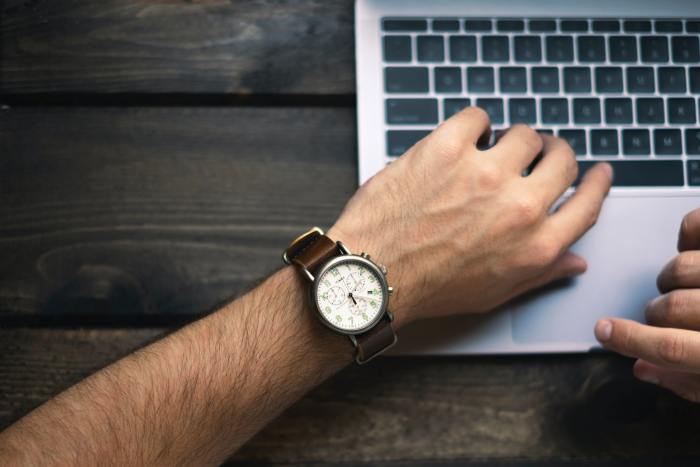 by Merle van den Akker, PhD Life: https://phdlife.warwick.ac.uk/2020/05/20/how-to-make-working-from-home-work/
by Merle van den Akker, PhD Life: https://phdlife.warwick.ac.uk/2020/05/20/how-to-make-working-from-home-work/
Working from home or hardly working? Are you struggling to make it work while using the same space and the same screen for work, leisure, entertainment and socialising? Merle shares her tips on how to get the best out of this situation and create a good, productive mindset..
Us poor PhD students, like many others, have been at home for a while now. This is now where we sleep, eat, live and now also work. For some this is business as usual. They are comfortable with this structure, and maybe actively seek it out, and prefer it to working from anywhere else. If that’s your case, lucky for you!
However, there are also quite a few people who aren’t used to working from home, or are, and don’t really like it. They might dislike it because it doesn’t fit their flow. Or because they constantly get distracted and don’t find it remotely productive. If you want some help with working from home, this article is for you.
Space
The first aspect we are going to look at is space. This is the most constrained aspect. Your working space is now also your kitchen, living room, bedroom and Netflix area. Not good.
The first aspect we are going to look at is space. This is the most constrained aspect. Your working space is now also your kitchen, living room, bedroom and Netflix area. Not good.
Now what can you do? It’s not helpful to work from your bed (unless that’s where you are most productive?). Our mind goes to either “sleep” or “chill” mode. Because that’s what most people do in their bed. This is associative reasoning, and really common. The fact that you get hungry if you’re working in the kitchen is caused by this as well.
So what can you do?
Create a space in your home that is just for work. If you can, create an impromptu office. If you don’t have that much space just lying about, create a micro-environment. This can be something as a specific side of the table and a chair. Or a specific corner of a room. You only sit there to work, and don’t do anything else there. Once you sit down there, you work. If you’re not sitting down there, you’re not working. Simple as that. This process lies at the foundation of classical conditioning, for my psychologists over here.
If it’s absolutely impossible for you to create any form of separate space, just put on a hat. Once you’re wearing that hat, it’s work time. Don’t laugh at me, then I won’t laugh at you. It’s the power of association.
Also, no one is going to see you with that hat on anyway.
Time
When it comes to doing a PhD, working hours are flexible anyway. But now, with offices shut down and all meetings being online, possibly in different time zones, the average schedule has truly gone to sh*t.
When it comes to doing a PhD, working hours are flexible anyway. But now, with offices shut down and all meetings being online, possibly in different time zones, the average schedule has truly gone to sh*t.
This lack of structure isn’t ideal for those who thrive whilst having a structure. The solution? Making the world’s most flexible planning. Instead of planning everything by the hour, just set targets for the day. In this way, if you get up at 10 am instead of 8 am, you don’t have to feel guilty or bully yourself for “ruining” your planning. Because you haven’t! There’s still plenty of time to meet your targets.
What you’ll see from this type of schedule is that you’ll fall into your natural routine. For me, this is to start work at 11 am and work till 7 pm.
If your working schedule doesn’t have these spontaneous interventions and time zone issues, do feel free to plan your day by the hour. It can be really helpful!
If you want more info on managing your time during the PhD, read this article here.

DistractionIf a clearly defined space, your natural working hours and the power of association aren’t working, something else is going on. The most likely perpetrator? Distraction.
Distraction can come in a lot of shapes, but ironically, during these times, they’re all coming from the same source. Distractions now mainly manifest in the online environment, with having to use an online platform to call friends/family, have social events, but also to relax on your own with Netflix, YouTube and other culprits.
The “lucky” thing here is that with this change in distractions, all of them can be shut down in the same way: no internet.
Once you disable internet on your laptop, computer and phone (maybe not even have your phone near you, or on), most distractions during COVID-19 are shut out. This means that you should be able to code, write or read (if you’re using Google Scholar or similar, download the papers first, then read in PDF mode).
It seems rather drastic, but there is a phenomenon called switching costs, which refer to the amount of time that is lost when getting distracted from your work and having to dive back into it. This adds up. Switch your internet off!
If you have any tips on how to work from home, tweet us at @ResearchEx, email us at libraryblogs@warwick.ac.uk, or leave a comment below.
by Merle
Merle van den Akker is a PhD student with the Behavioural Science Group at WBS, looking into the effect of contactless payments on how me manage our finances. She tweets at @MoneyMindMerle.
No comments:
Post a Comment